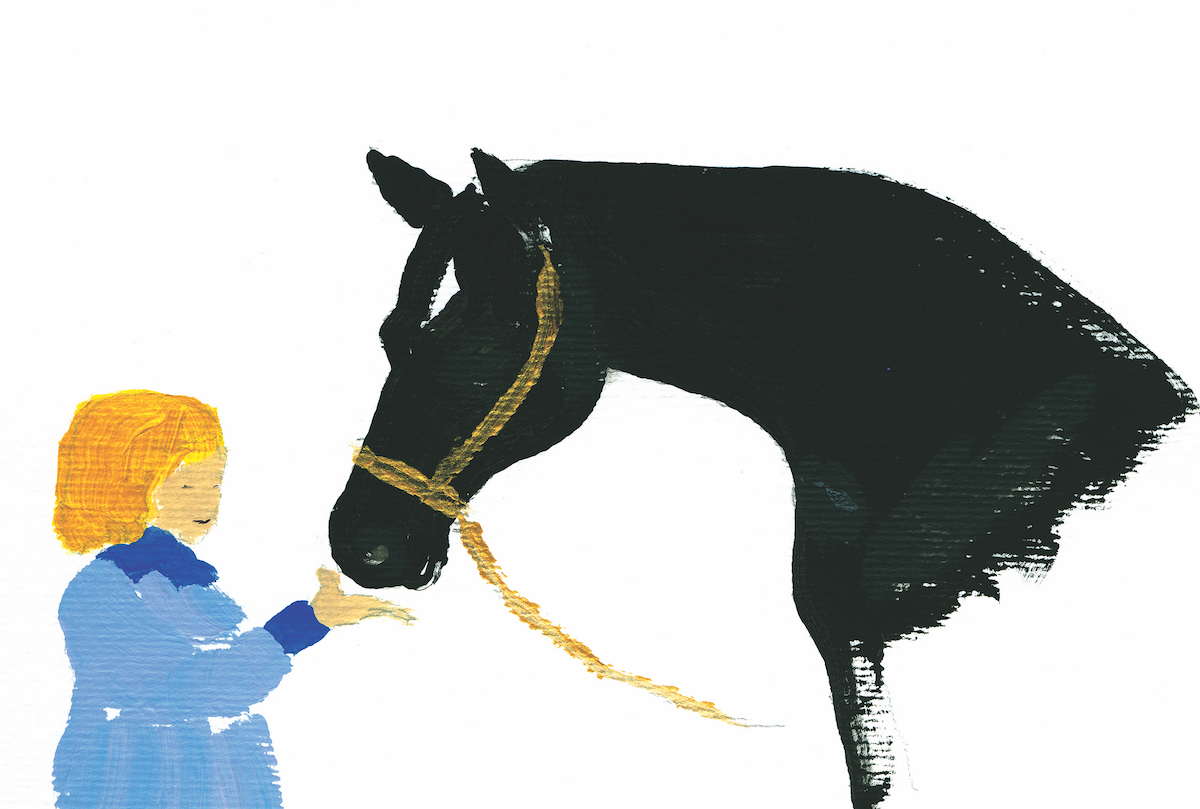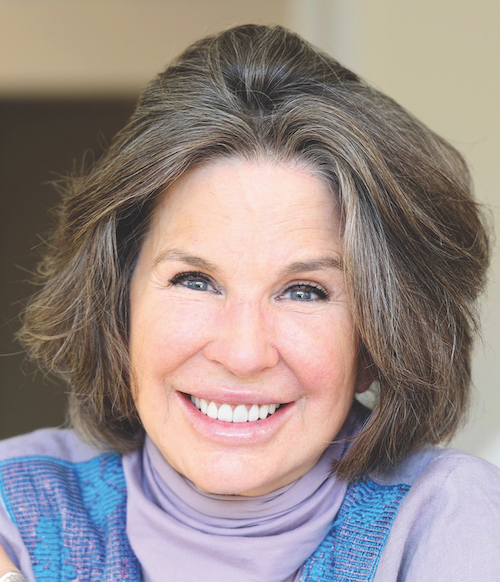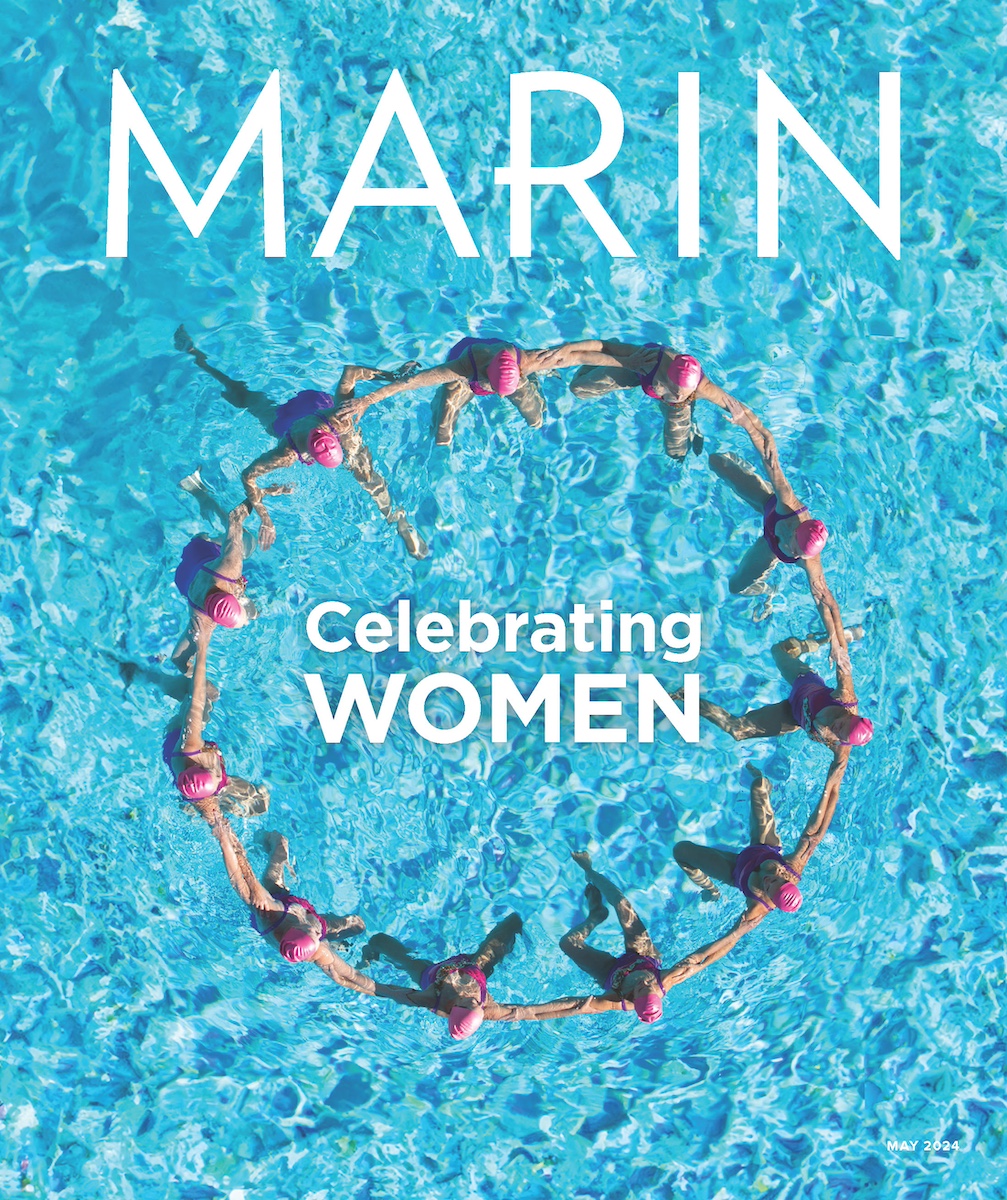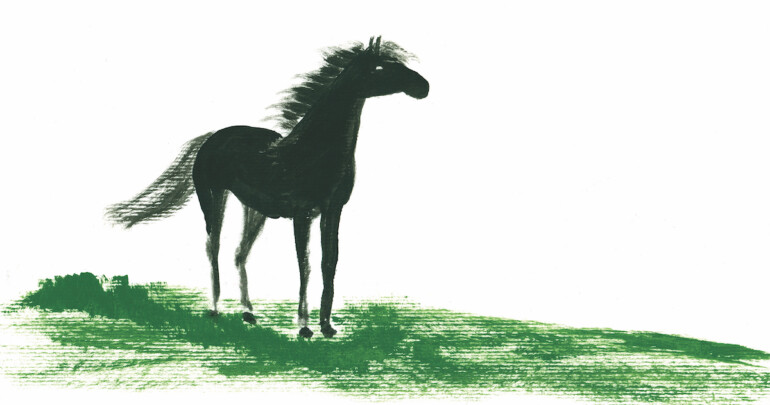Jesse Kornbluth, a New Yorker who last rode a horse on a merry-go-round in Central Park, didn’t read Black Beauty until he was 50, and his purpose then was to solve a literary riddle. It was the book that Ludwig Wittgenstein — arguably the greatest philosopher of the 20th Century — read as he lay dying. Why this book?
Paige Peterson read Black Beauty as an 11-year-old living in Belvedere, a few pastures from Blackie, the horse that would become the subject of her first book, Blackie, The Horse Who Stood Still.
Eleven used to be the dream age for girls to read Black Beauty. For them, it wasn’t just the best book about horses, with danger, cruelty, and a plot that never ambles when it can race. Much better, it gave young riders like Paige a sense of freedom – in the language we use now, it “empowered” them. Then they hit adolescence, and horses faded…
Books don’t change over time, but readers do, and Black Beauty is the poster-child of that truth. Anna Sewell, a lifelong invalid, wrote the book in the 1870s, when she was often so weak she had to dictate it to her mother. She died at 58, a few months after it was published. She never imagined her book would be an instant best-seller.

Black Beauty would eventually sell 50 million copies worldwide and become, it’s said, “the sixth best seller in the English language.”
The book wasn’t intended to appeal to dreamy girls. Sewell had a political purpose: London’s 10,000 cabs were a public scandal, and the horses were often badly treated. Her aim in writing Black Beauty, she said, was to “induce kindness, sympathy and an understanding of the treatment of horses.” She achieved this with a brilliant device: as Black Beauty tells the story — remember, the horse is the narrator — animals are just people in other forms. The novel is a parable.
In his old age, Black Beauty is returned to a lovely meadow and a righteous owner. “My troubles are over, and I’m at home,” he says. “Often, before I’m quite awake, I imagine I’m still in the orchard at Birtwick, standing with my old friends under the apple trees…”
Why did Wittgenstein choose this book as the last he’d ever read? Jesse concluded it presents a world with good that’s ultimately more powerful than evil. Anyone would want to live in this world. And for a few hours, anyone can.
A few years ago, Paige and Jesse realized that “children’s classics” were simply too long for kids to read — or sit through, so Jesse abridged and Paige brilliantly illustrated A Christmas Carol by Charles Dickens. As the video reveals, they did just what Dickens did when he performed the story. The abridged edition of Christmas Carol is available at Book Passage in Corte Madera, and now Black Beauty also is.

Paige Peterson (illustrator)
Paige Peterson is the author of Growing Up Belvedere-Tiburon. She Illustrated Blackie, the Horse that Stood Still, which she co-authored with Christopher Cerf. As an illustrator, she has collaborated on A Christmas Carol and Black Beauty, adapted by Jesse Kornbluth. As a painter, she is represented by Gerald Peters Gallery in New York and has been honored by The Guild Hall Academy of the Arts in East Hampton. As a photojournalist, Paige has reported extensively about the Middle East. As a journalist, she has contributed to Marin Magazine, New York Social Diary and the National Council on U.S. Arab Relations. She is the Author and Artist in Residence at Literacy Partners, a Board Member of Catmosphere, National Council on U.S. Arab Relations, and Safari West Wildlife Foundation. Raised in Belvedere, California, Ms. Peterson has two grown children and lives in New York City.

Jesse Kornbluth (editor)
As a magazine journalist, Jesse Kornbluth has been a Contributing Editor at the New York Times Magazine, New York and Vanity Fair. From 1997 to 2003, he was Editorial Director of AOL. Since 2004, he has edited a cultural concierge, HeadButler.com. He has published four books of non-fiction and two novels: Married Sex and JFK and Mary Meyer: A Love Story. He has recently completed The Next Dalai Lama, a novel about the reincarnation of the Dalai Lama in Merrick, a Long Island suburb of New York City. In collaboration with Paige Peterson, he has abridged A Christmas Carol and Black Beauty.


